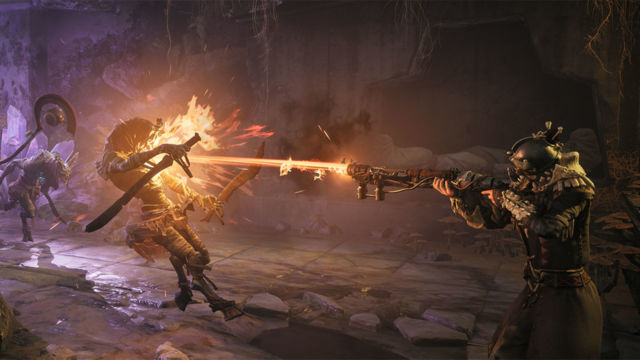
Today’s gamer is faced with an embarrassment of riches when it comes to choices. Every day there are literally dozens of new titles being released across consoles, PCs, mobile phones, VR platforms, and more. Usually that includes at least a couple of games that would be worth your time, if only you had the time to sort through them all.
We can’t say we’ve played through all the thousands of titles big and small that have come out this year. Of the ones we have played, though, these are the ones that we’d feel comfortable recommending to anyone.
20. Telling Lies

Sam Barlow/Annapurna Interactive; Windows, Mac, iOS
The basic story in Telling Lies wouldn’t be all that interesting if it was told as a standard, linear movie plot. But Sam Barlow’s follow-up to 2015’s excellent Her Story once again proves that the storytelling function can grow out of a newly relevant interactive form.
Players experience the narrative of Telling Lies via one-sided pieces of two-way video conversations, accessed via semi-random searches through a hard drive database. There’s an immense intimacy to experiencing a story like this, via characters talking directly to the camera, to you. You see these people utterly exposed, interacting with unseen partners, reacting to unheard provocations, and pausing to listen to long-unheard monologues, with no knowledge that someone else will be spying on them much later. Getting to know these people in this way almost feels intrusive, like you’re intruding on private moments that might better remain hidden.
There’s a certain puzzle-sorting joy in piecing together the larger plot from these disjointed conversations, and every newly discovered clip has the potential to serve as a “twist” that recontextualizes information from the past (or the future, depending on the order in which you view it all). While the conclusion feels a little cliche and not entirely earned, the strong acting and tightly written characterization keeps it all engaging until the very last clip is discovered. We can only hope Barlow’s work inspires others to keep experimenting with what is still a largely unexplored storytelling format.
-Kyle Orland
19. Remnant: From the Ashes

Gunfire Games; Windows, PS4, Xbox One
More Destiny? Meh. More Borderlands? Nah. Give us more Remnant: From the Ashes.
This modest third-person combat game takes all of the lessons a development team could possibly learn from Destiny 2, Monster Hunter, and Dark Souls, then funnels them together into a co-op combat experience that I keep returning to with my favorite online battling buddies. There’s a real grace to Remnant’s semi-randomized combat onslaught. You’ll march through a randomly generated town instance one moment, picking through its every corner for useful loot while contending with surprise-spawn enemies, then find a door that warps you to either a randomized or pre-made instance of more intense foes (or even one of its many incredible boss battles).
After every particularly brutal battle, the game is wise enough to drop an accordion-squeeze cool-down of traversal and simpler combat before ramping things up again. And at any point, it’s easy for a trio of friends to warp to a base and unpack a mix of weapon purchases and plot reveals in ways that should particularly embarrass the devs who famously bungled the very same thing in Anthem.
This basic formula, which constantly keeps a group of friends exploring and fighting without any aimless wandering through open worlds, is anchored by a tremendous mix and balance of ammo-limited firearms and brutal-and-slow, Souls-like melee implements. Remnant is generous enough to let players customize their loadouts to specialize in either gunplay or swordsmanship, but you won’t get far without juggling each weapon extreme. Plus, it’s easy enough for friends to bring on a random partner or newbie thanks to intelligently scaling combat, so it’s that much easier to party up and play Remnant in its ideal, three-fighter state at any given moment.
-Sam Machkovech
https://arstechnica.com/?p=1635145

